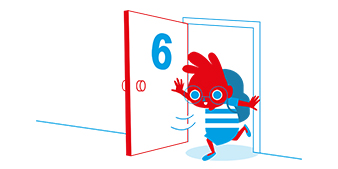June, 2017
Some parents regard "developmental delay" as the most confusing in the SEN field. Like the last one left in elimination, doctors do not have a concrete idea and there is less information on its symptoms, therapy, developmental trajectory, and adaptation to adulthood compared to other disorders. How should we understand the diagnosis of developmental delay?
As the expert says...
According to Dr Ellis Hon, Professor of the Department of Paediatrics at the Chinese University of Hong Kong, paediatricians mainly have two focuses – growth and development. Growth refers to the increase in height, weight, head circumference, and other measurements as the infant grows up; development is a continuous process with an almost-magical sequence of milestones.
For instance, when does the infant hold his/her neck to lift his/her head? When does he/she sit up? When does he/she walk the very first step? Can the baby hold things with his/her tiny hands? When does he/she start putting words together? Does the four-week-old infant smile at his/her mother's face? Between nine months and one year of age, is the baby stressed by the sight of strangers? Does he/she enjoy the company of peers?
Paediatricians are keen to identify milestones in gross and fine motor, language, and social development. They tend to consider a ten-month-old infant who cannot sit up by himself/herself rather alarming. Yet, everyone has a slightly different development because the onset and sequence of these milestones are affected by factors including genetics, environment, upbringing and learning. A child who lags behind his/her peers significantly is deemed to have developmental delay. According to Child Assessment Service of the Department of Health, the term “developmental delay” is used to describe pre-school children whose developmental levels are substantially behind the average expectations of children of the same age in two or more developmental domains.
To most parents, autistic disorder and AD/HD are telling in themselves. These tags come with a wide range of information on diagnosis, therapy, developmental trajectory and other aspects. Developmental delay, however, seems to lack further elaboration the child does exhibit delay in development, but apart from that, limited references are available.
"True, developmental delay is less clear. Yet, every cloud has a silver lining and such uncertainty may imply a better development to look forward to. In fact, most cases are rather mild. The causes of developmental delay, which many parents want to figure out, are nothing too surprising."
Genetic factors, such as chromosomal abnormalities or hereditary diseases, play a part. Pregnancy and birth factors include fetal alcohol syndrome caused by excessive alcohol intake during pregnancy and fetal exposure to contaminants. Illness, poisoning or brain injury during infancy can lead to developmental delay. It can also be attributed to environmental factors, including a lack of social and language stimulations.
Dr Ellis Hon also reveals that all these together only account for a minority of cases. The cause in most cases is largely unknown. Whether or not a complete picture can be assembled, what has happened cannot be undone.
"Instead of spending time to investigate the causes, parents should start training as soon as possible. Focus on what you can do to help your children thrive and perform to the best of their abilities," advises Dr Ellis Hon.
After all, development delay is an inclusive term that encompasses areas including motor, language, social, intellectual capabilities. Every child has a distinct focus on training. Only by matching with the relevant professionals (such as speech therapist or physiotherapist) can offer children the best step-by-step assistance.

December, 2016
"Wriggling in seat during homework time is attributed to disorder; sitting stock-still for video games is not a problem - what kind of AD/HD is this?" This is said to be the reason that has infuriated a lot of parents, who consider their children naughty because they are able but reluctant to sit still. How is attention deficit/ hyperactivity disorder (AD/HD) diagnosed? How can we understand children's reluctance to sit still and, subsequently, how can such understanding help?
February, 2017
The golden period for treatment is often heard of, is there such a period for SEN? What if it is missed?
December, 2016
Why are there more and more children with special educational needs (SEN)? Seems like there is always one around?We have complied different kinds of social resources for your reference, including those provided or subvented by the government, non-subvented self-financing ones, as well as mutual/self-help efforts.
Details